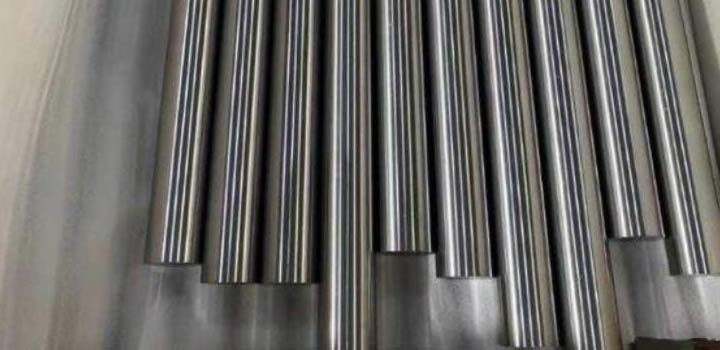SCM415 is a widely recognized material in Japan under the JIS standard. It is a low-alloy chromium-molybdenum steel with notable mechanical properties. Below, you'll find an overview of the equivalent materials across different global standards and regions. Table of Contents Chemical Composition of SCM415 Chromoly DIN 1.7262 undergoes a heat treatment process that includes quenching and tempering, enhancing its mechanical properties such as hardness, ductility, and strength. Mechanical Properties of SCM415 Steel Equivalent Materials for SCM415 Physical Properties of SCM415 Steel Annealing Process of SCM415 Alloy Steel Carburizing hardening treatment improves wear resistance and fatigue strength due to the tough high carbon surface layer. This treatment also enhances the ability to resist surface pressure and prolongs the lifespan of parts exposed to stress or harsh environments. This makes it ideal for products operating in environments that require significant endurance and resilience. Hardening of Acero SCM415 Tempering of SCM415 Case Harden Steel The yield strength of 15CrMo steel is 415 MPa, and this temperature range is commonly used to produce components like boilers, pressure vessels, and high-pressure and temperature pipes. Precise control over forging temperature is crucial to achieving optimal mechanical properties and microstructure. After forging, the material undergoes heat treatment to enhance strength, ductility, and hardness. Forging of X30WCRV93KU Grade Thermal Properties of JIS G4105 Grade SCM415 Hardness of SCM415 Material The melting point is critical for ensuring proper heat control during the production of SCM415 and for verifying its structural integrity at high temperatures. With a density ranging from 7.8 to 7.9 g/cm³, 15CrMo is typical for low-alloy steels primarily composed of iron. Density of 15CrMo Thanks to its high rigidity, X30WCRV93KU can withstand greater loads without deforming. The addition of molybdenum and chromium enhances its tensile and yield strength, contributing to its high rigidity. Due to these properties, it's commonly used in pressure vessels and high-pressure applications. When SCM415 is case-hardened, the surface becomes harder, improving fatigue strength. However, it’s essential to perform this process carefully to avoid negatively affecting fatigue strength. Manufacturers should ensure precise execution of this process. Fatigue Strength of DIN 1.7262 What is SCM415 Steel? SCM415 is a high-quality quenched and tempered alloy structural steel, belonging to the category of medium carbon, oil-quenched, and surface-treated steel. Criterion for Heat Treating Conditions of 15CrMo Surface Finishes of SCM415 Alloy Steel Angular Travel Electric Actuator,Angular Displacement Electric Actuator,Aluminum Alloy Sealed Electric Actuator,Reversible Ac Motor Angular Electric Actuator NINGBO JIECHENG ELECTROMECHANICAL CO.,LTD. , https://www.jiechengmechanical.com
DIN 1.7262 is a High-Quality Quenched and Tempered Steel, Explore SCM415 Steel Mechanical Properties
Typical Steel Elastic Modulus
Bulk Modulus
Tensile Strength
Yield Strength
GPa
GPa
Mpa
Mpa
190-210
140
655
415
Japan
China
France
Italy
Germany
England
JIS
GB
AFNOR
UNI
DIN,WNr
BS
SCM415
15CrMo
15CD4.05
X30WCRV93KU
15CrMO | 1.7262
1501-620 | Cr31
Specific Heat
J/kgKTemperature T
°C/FThermal Conductivity
W/mKModulus of Elasticity
kN/mm2
43
44
14
321
Annealing Temperature
800~850 ℃(1472~1562°F)
SCM415 Chromoly Steel Undergoes Carburizing Hardening Treatment, Explore SCM415 Alloy Steel Hardening
Hardening
840-875°C (1544-1607°F)
Tempering Temperature
500-700°C (932-1292°F)
15CrMo Steel Has a Yield Strength of 415 MPa, Explore Forging Temperature of Acero SCM415
Forging Temperature
840-875°C (1544-1607°F)
Thermal Conductivity (@ 100°C)
296 BTU in/hr.ft².°F
42.6 W/mK
Thermal Expansion Coefficient (@ 0-100°C/32-212°F)
6.78 µin/in°F
12.2 µm/m°C
Hardness
28-34 HRc
JIS G4105 Grade SCM415 Has a Melting Range of 1382 – 1529 °C, Explore SCM415 Alloy Steel Density
Density
7.8 – 7.9 g/cm³
X30WCRV93KU Grade Offers High Rigidity, SCM415 Case Harden Steel Fatigue Strength
Fatigue Strength
275 MPa
Carbon
0.38~0.43%
Manganese
0.75~1.00%
Phosphorus
≤0.035%
Sulfur
≤0.040%
Chromium
1.10%
Molybdenum
0.15~0.25%
Iron
97.25%